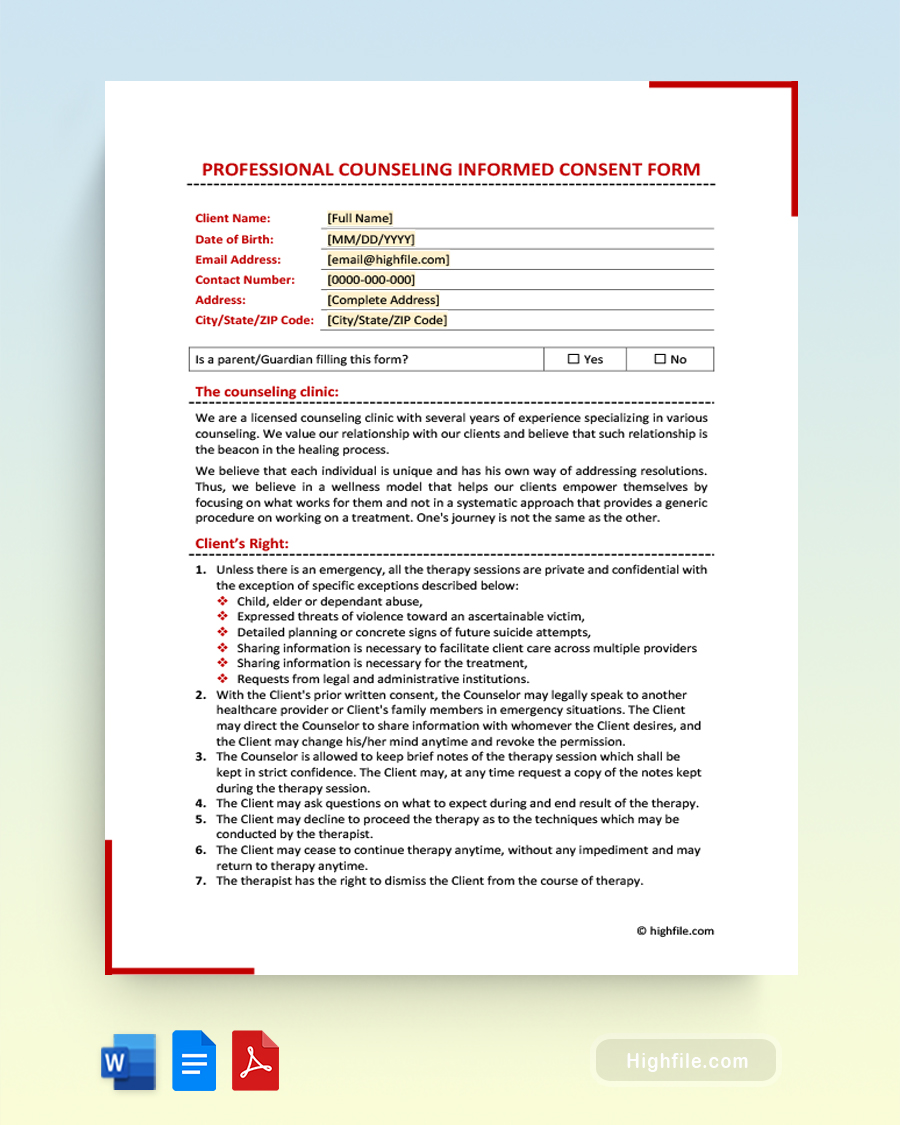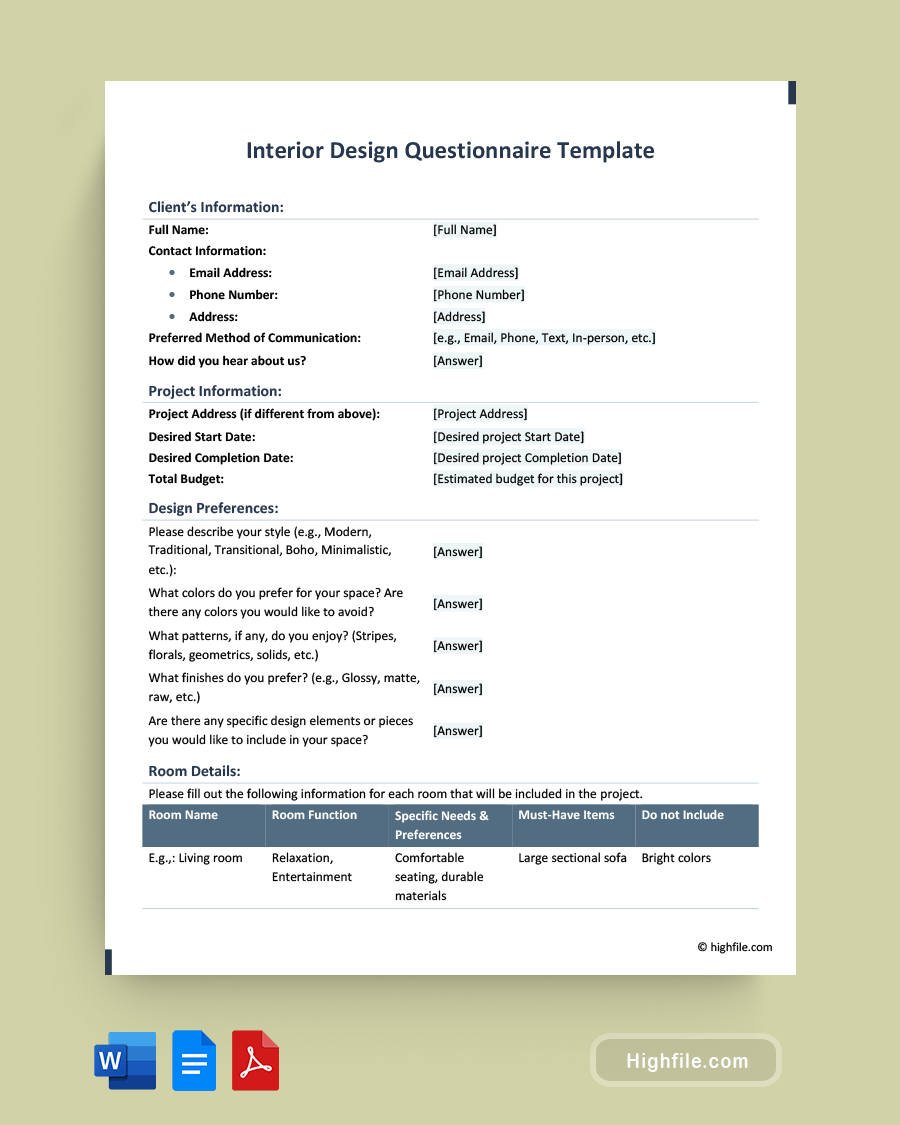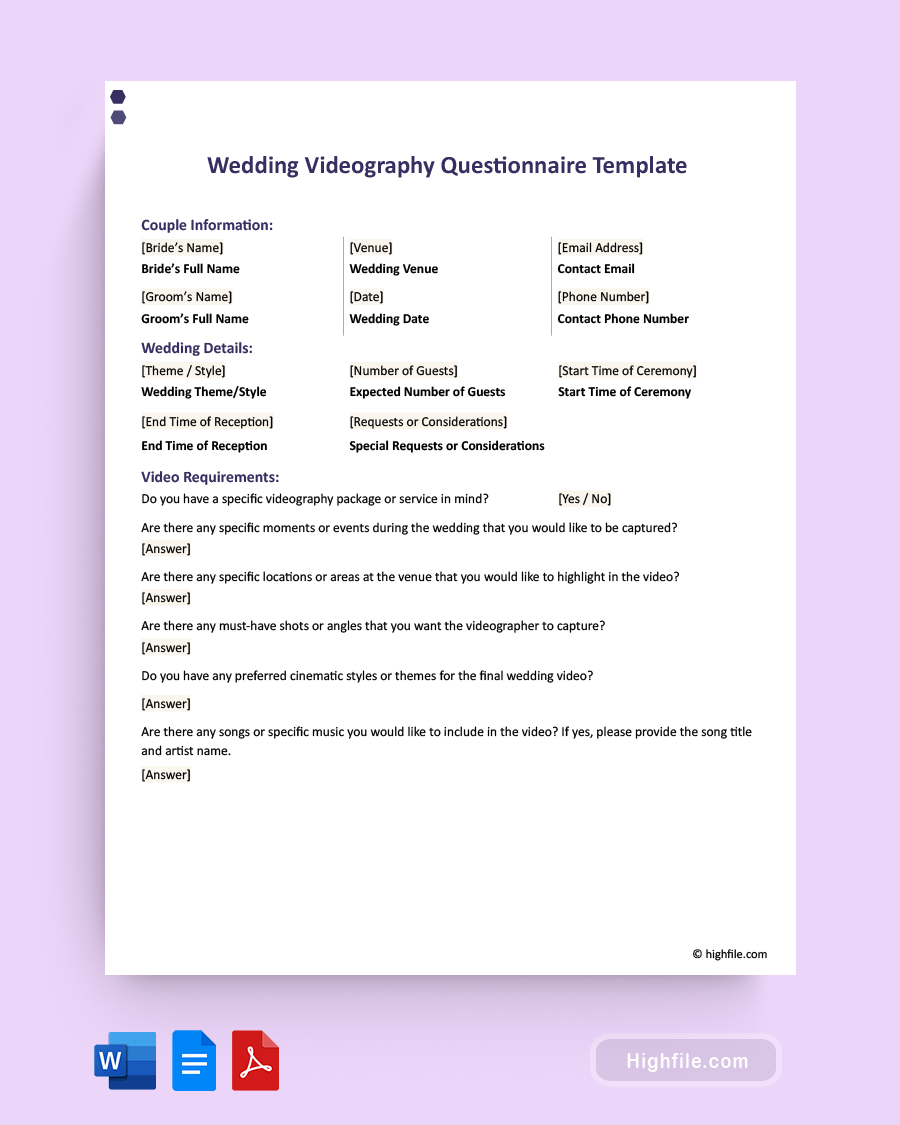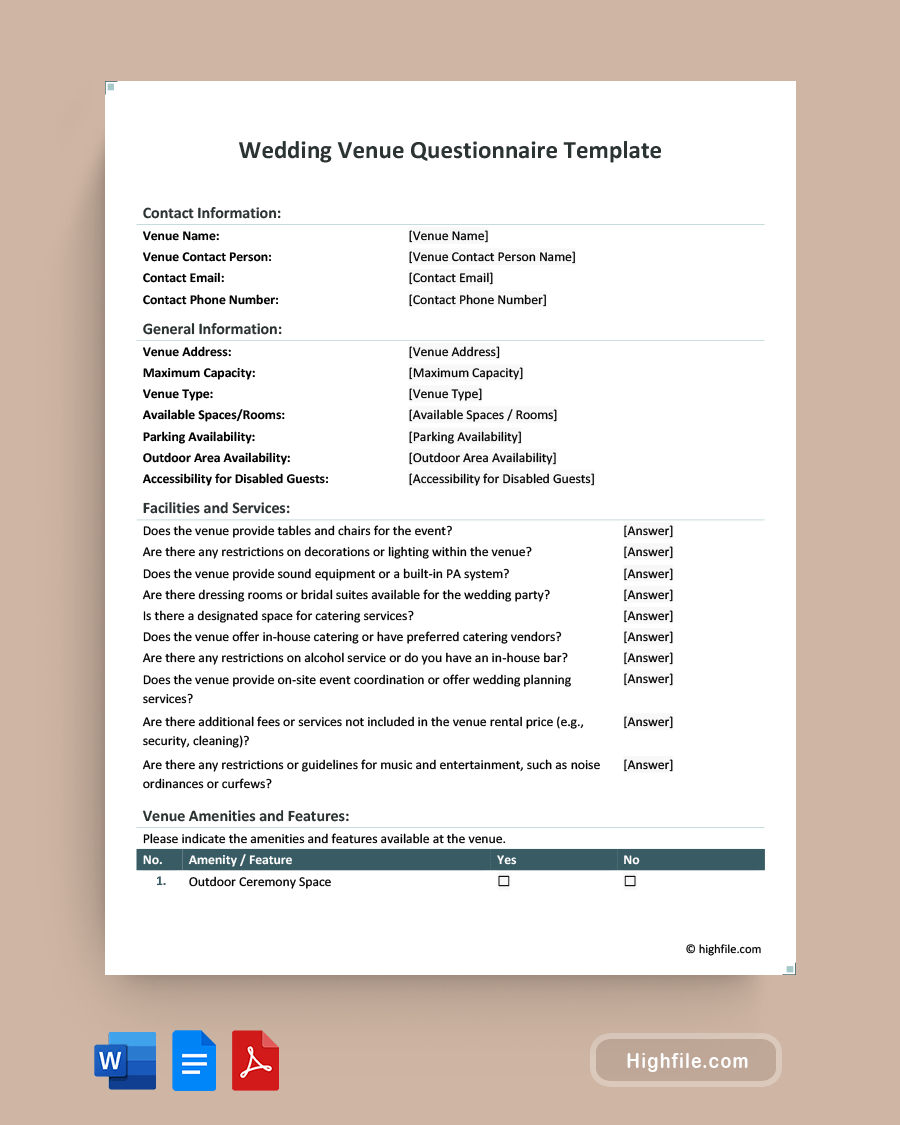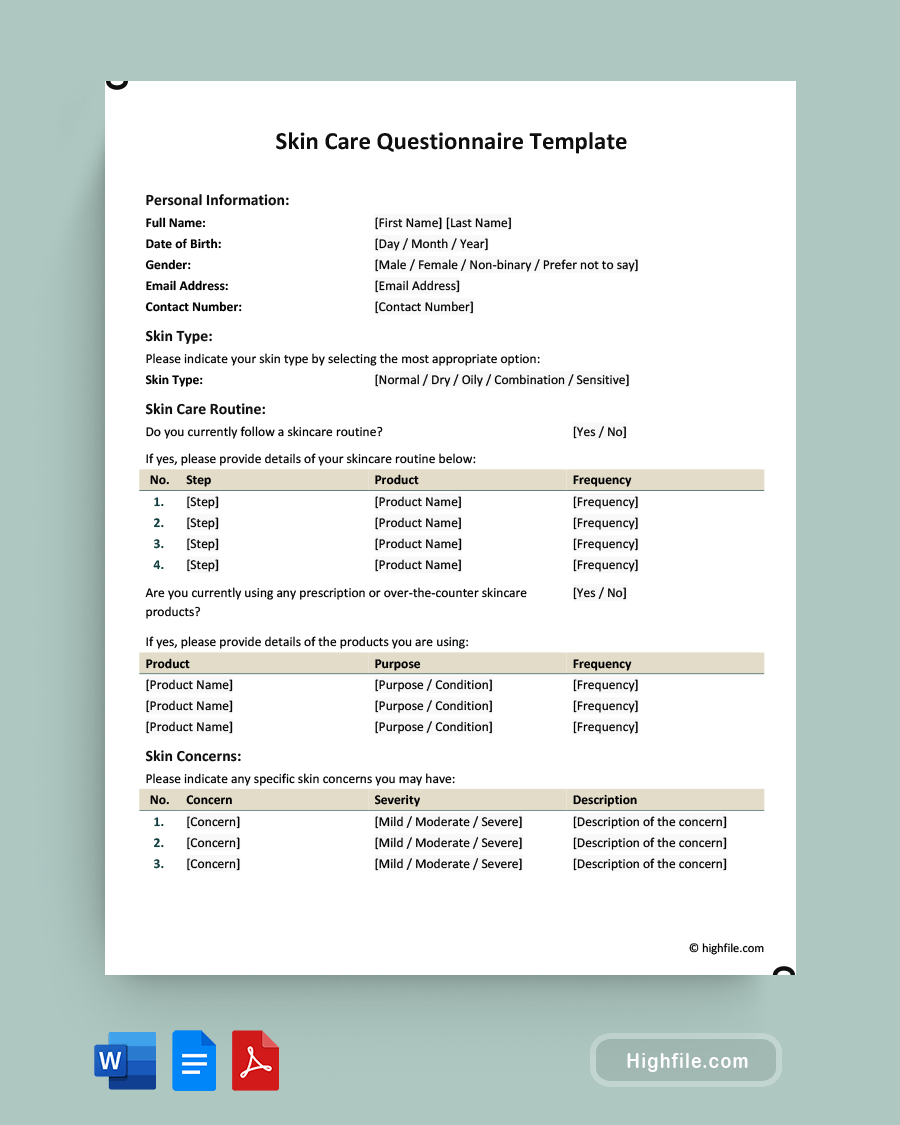Professional counseling is a wonderful form of therapy that helps people address their mental health and emotional issues. In order to ensure the safety and privacy of the client, professional counselors must obtain informed consent from their clients before providing any counseling services. The Professional Counseling Informed Consent Form is an important document that outlines the rights and responsibilities of both parties involved in the counseling process. It also serves as a legal agreement between the counselor and client, outlining what services will be provided, how confidential information will be handled, and any other pertinent details related to the counseling process. We recommend using a professionally designed template to make your consent forms because they save time and ensures all the relevant information is where it needs to be. In this article, you’ll learn everything you need to know about how to customize your Professional Counseling Informed Consent Form.
What Is a Professional Counseling Informed Consent Form?
Professional Counseling Informed Consent Forms are an essential part of the counseling process. They provide a way for counselors and clients to agree on the terms and conditions of their relationship. They also help to ensure that both parties understand their rights and responsibilities in the counseling process. Professional Counseling Informed Consent Forms provide a legal document that outlines the expectations of both parties, as well as any potential risks or benefits associated with counseling services. By signing this form, both parties agree to abide by its terms and conditions.
When is the Professional Counseling Informed Consent Form Needed?
A professional counseling informed consent form is always needed when doping intake for new clients. These crucial documents provide therapists with a way to ensure that their clients understand the risks and benefits of counseling and their rights and responsibilities. Informed consent forms also help protect therapists from potential legal issues by providing evidence that they have obtained informed consent from their clients. By having informed consent forms in place, therapists can ensure that they provide ethical and effective counseling services to their clients.
Essential Elements of Professional Counseling Informed Consent Form
(Optional but Highly Recommended) Practice Name or Logo- Although therapy is a highly personal process, business is formal. Using a logo or business name at the top of your documents adds a professional touch.
- Title- Your form should say “Professional Counseling Informed Consent Form” in large bold print at the top. This helps with recordkeeping and clarifies exactly what the reader is holding.
- Client Name- List the full legal name of your client.
- Birthdate
- Parent or Guardian- If you treat minors, leave a checkbox to indicate whether a parent or guardian is filling out the form for them.
- Client Contact Information- Include the address, phone number, and email contact information for your client or their parent/guardian.
- Practice or Practitioner Information Statement- Leave space for a brief, one or two-paragraph statement about your practice and experience here.
- Client Rights- List all the client rights, including how to opt-out or rescind this form.
- Statements of Assent- This should say precisely what the client agrees to by seeking counseling with you.
- Signature and Date Lines- You may need two sets of signature and date lines if you treat minors. Have the client sign and date above, and if necessary, the parent or guardian sign below.
Additional Information You May Want to Provide With This Form
It is not necessary to provide additional paperwork when clients sign their consent form for professional counseling. However, it is a common practice to include additional information for their reference and records. Here are some of the most common topics you may wish to address.
- A brief explanation of what happens in a typical therapy session
- Information on the therapist-client relationship and confidentiality
- Treatment and session duration
- The risks and benefits of professional counseling
- How to set goals for therapy
- What to expect from your sessions or what constitutes positive forward progress
- How will you handle a crisis if one should occur
- Fees and payment terms
- How to make and cancel appointments
- The Duty to Warn and its guiding criteria
Tips for Writing a Better Professional Counseling Informed Consent Form
Writing a professional counseling informed consent form is integral to the counseling process. Ensuring clients know their rights and responsibilities when engaging in counseling services is essential. The following list includes a few tips to help you provide your clients with an excellent and easy-to-understand form.
- Don’t DIY- Use a professionally created template to save time and make a final document your clients will understand.
- Brainstorm and Take Notes- Instead of putting down your first ideas or impressions, use a spare sheet of paper or note program to create a rough outline of what you want the form to say.
- Choose Your Words Carefully- Providing clear language and instructions is vital. Remember that the average person reads at roughly an eighth-grade level and is not privy to medical terms. Keep your explanations concise and easy to read.
- Always Offer to Answer Questions- To ensure that clients understand the terms of their agreement, it helps if you include a note on the page letting them know you are happy to answer any questions about the consent form or other aspects of their therapy.
FAQ
You likely have more questions if you are new to counseling or have never created a professional counseling informed consent form. In this section, we answer some of the most frequently asked questions from people seeking information on this topic. You will find more details about what questions clients should ask before signing, when you may need to make an exception to confidentiality, and disclosing personal information about yourself.
Therapists are typically expected to maintain a professional relationship with their clients, including not disclosing personal information. This is because it can create a power imbalance in the therapeutic relationship and potentially blur the boundaries between therapist and client. In some cases, it may be necessary for a therapist to disclose specific personal information to provide effective treatment for their clients. However, this should only be done with the utmost care and consideration for the client’s best interests. They should also be aware of ethical concerns when disclosing personal information, such as potential conflicts of interest or confidentiality issues.
There are exceptions to confidentiality in counseling, but they are there to protect the therapist and client. Many of the exceptions involve protecting children, but some exceptions also exist to prevent self-harm and criminal activities. For example, a client with vivid, detailed plans to self-harm or commit suicide in the future may need outside intervention. Here are a few additional times when confidentiality is less important than the law or saving a life.
ᐅ In some areas, details of significant criminal activity must be reported to the police. Please ask an attorney or check your local laws if you are uncertain whether this applies to you.
ᐅ For minors, child abuse or anticipation of future child abuse
ᐅ Planning violence against anyone, including minors or animals
ᐅ Details of previous acts of child or elder abuse (as the abuser)
Before signing a professional counseling informed consent form, it is crucial to understand the terms and conditions of the agreement. It is also essential to ask questions about the services provided, confidentiality, fees, and other relevant information. You may also want to inquire about extending your time for an additional fee or more sessions you may need when you are experiencing temporary stressors or an urgent (non-emergency) situation. These questions will help you make an informed decision about your counseling experience.
Final Thoughts
After meeting their new therapist, a well-thought-out professional counseling informed consent form is the first thing a client should read and sign. These documents provide information about the therapist or service, patient rights, and consent. Additionally, as a legally binding agreement, these forms offer protection from legal liability and show a good faith effort to ensure the client understands what they are asking for and what to expect. Using a professional template can help cut down on busy work and provide you with an easy-to-use format that will help make sure you cover all the essential aspects of informed consent before you work with a new client.
